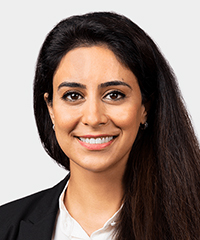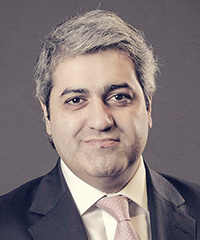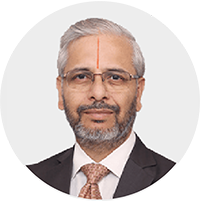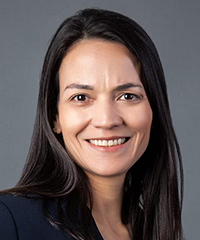International Trade Key Developments in Decarbonisation: CBAM, Carbon Tax and Trading – Impact on Businesses and Supply Chains
- Date
- Saturday, April 27
- Time
- 9:00-10:30
- Location (Room)
- La lumière
Sustainability and ESG have taken over the world like a storm. Globally, countries have progressed in their legislative frameworks and policies in these areas, of which a key aim is to decarbonise. All these impact trade and businesses’ supply chains. For instance, the EU Emissions Trading System (ETS) currently subjects countries in the EU to a ‘cap-and-trade’ system. The new Carbon Border Adjustment Mechanism (CBAM), however, will apply on a wider scale to address goods produced outside the EU. What impact would this have on EU businesses looking to shift manufacturing to countries with laxer environmental compliance requirements? What legal and practical impact would this then have on businesses operating in such countries, say within Southeast Asia? In US, decarbonisation developments differ from state to state, including cap-and-invest programmes in the California, New York and Washington States, carbon tax bills in Hawaii, or new voluntary trading platforms for fuel suppliers in Oregon. How do these affect trade at a cross-border level? Within Southeast Asia, Singapore is an example of a country that has recently significantly amended its carbon tax regime, which increased the carbon tax. Yet, it now allows international carbon credits to be used to offset part of taxpayers’ tax liability. With voluntary carbon exchanges also being set up in countries such as Singapore or Malaysia to trade carbon credits, what do these all mean for businesses looking to invest in carbon projects? Whether you a M&A lawyer, a general corporate lawyer, an employment lawyer or a trade lawyer, you need to know the issues that arise from these developments.
Moderator

Nahila Cortes
Moderator

Augusto Vechio
International Trade & Customs, Competition & Antitrust, Consumer Protection
Augusto Vechio is a partner at Beccar Varela. He co-leads the International Trade & Customs Department and is a member of the Diversity and Inclusion Committee. He joined the firm in 2003.
His practice areas include international trade, World Trade Organization rules (trade defense – dumping, safeguards, subsidies and countervailing measures and import licenses), Mercosur, execution of free trade agreements, export control & trade sanctions, antitrust (merger control and anticompetitive practices), unfair competition, consumer law and economic regulation.
Augusto obtained his Law degree from Universidad Católica Argentina (2004) and conducted post-graduate studies in Economic Administrative Law at the Universidad Católica Argentina (2005-2006).
He is a member of the Buenos Aires Bar Association, the International Bar Association (IBA), and chairman of the Inter-Pacific Bar Association's International Trade Committee for 2022-2024.
Augusto has been recognized by Chambers Latin America, Chambers Global, The Legal 500, Latin Lawyer 250, Leaders League and the International Law Office (Client Choice Awards 2013 and 2014).
He speaks Spanish and English.
Speaker

Joshua Seet
Speaker

Seetharaman Sampath
Seetharaman is a co-founder at Sarvada Legal and a specialist in international trade and WTO Laws. His expertise in accounting help clients get the best result in any antidumping, countervailing or safeguard duty investigations. He has a rich experience in export controls, import restrictions, technical barriers to trade, trade in services, inbound and outbound investments, customs valuation, foreign exchange management, competition law, IBC, and commercial dispute resolution. He is also a litigating lawyer who appears regularly before various adjudicating authorities and courts.
He has represented clients globally in over 250 trade remedy investigations spread across 18 jurisdictions seeking either imposition of trade remedy measures or opposing them. His clients include domestic producers, foreign producers, exporters, importers, governments of exporting countries, end users and other interested parties. Combining his legal acumen with a sound knowledge of accounting, he provides the most appropriate solutions to the clients in every trade remedy investigation.
Seetharaman is an expert on issues relating to free trade agreements, including rules of origin and bilateral safeguard measures. He assisted the Government of India in the Regional Comprehensive Economic Partnership (RCEP) negotiations.
His expertise include customs law, foreign trade policy, export controls, foreign exchange management, foreign direct investments (both inbound and outbound), commercial laws and technical standards issued by Bureau of Indian Standards (BIS).
Seetharaman is a seasoned litigating lawyer regularly appearing before the adjudicating authorities in various departments of the government of India, tribunals, High Courts and the Hon’ble Supreme Court of India. He has represented members of the WTO before its Dispute Settlement Body in several WTO disputes.
He has also helped clients in India get products removed from the list of goods produced using child labour/forced labour maintained by the Bureau of International Labour Affairs (ILAB) of the US Department of Labour.
Speaker

Anna Dias
Speaker

Kazuhide Ueno